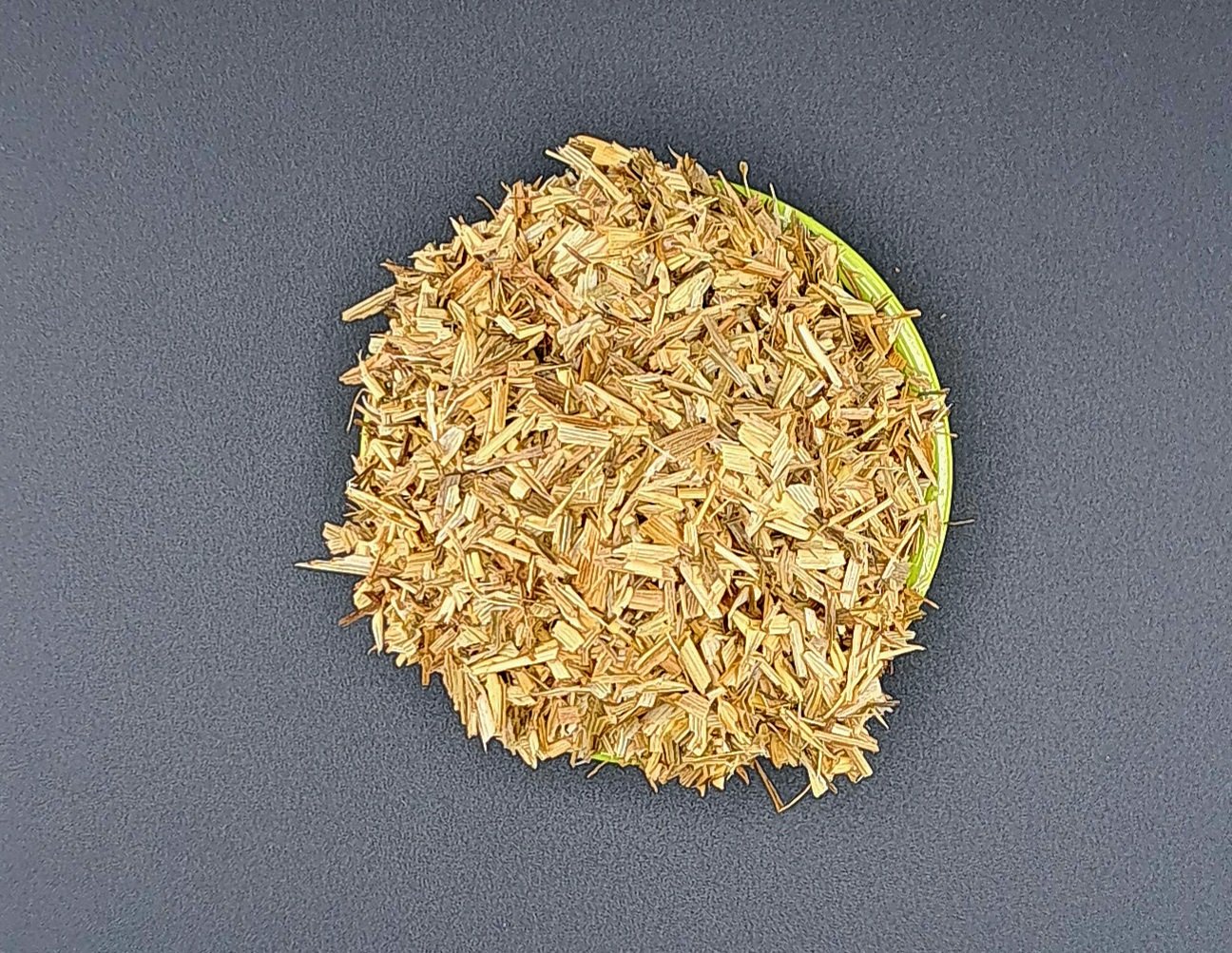Oatstraw, Organic cut & sifted
1/4 Lb.
1/4 Lb.
1/4 Lb.
Oatstraw, also known as Avena sativa, refers to the green, unripe stems of the oat plant. It is distinct from the oat grain or oat bran and is valued for its potential health benefits. Here are some key points about oatstraw:
Characteristics and Uses:
Nutrient-Rich:
Oatstraw is rich in various nutrients, including vitamins, minerals, and other bioactive compounds. It contains nutrients like B-vitamins, calcium, magnesium, and silica.
Adaptogenic Properties:
Oatstraw is sometimes considered an adaptogen, which means it may help the body adapt to stress and promote a sense of balance.
Nervine Tonic:
It is often used as a nervine tonic, believed to support the nervous system and contribute to overall well-being. Some herbalists recommend it for stress and nervous exhaustion.
Bone Health:
Oatstraw contains silica, which is believed to contribute to bone health and connective tissue strength.
Skin Health:
Silica in oatstraw is also thought to benefit skin health and contribute to maintaining healthy hair and nails.
Mild Sedative Properties:
Oatstraw is sometimes considered mildly sedative and may be used to promote relaxation and improve sleep.
Mood Support:
Some herbalists suggest that oatstraw may have mood-enhancing properties and can contribute to a positive outlook.
Preparations:
Tea:
Oatstraw is commonly used to make herbal tea. To prepare oatstraw tea, you can steep dried oatstraw in hot water for about 10-15 minutes. The resulting tea is mild-tasting and can be enjoyed on its own or blended with other herbs.
Tinctures and Extracts:
Oatstraw can also be prepared as a tincture or extract, offering a concentrated form of the herb. These preparations are often taken in small amounts.
Infusions:
Oatstraw can be used to make infusions, a method of steeping the herb for a longer duration to extract a broader range of nutrients. This involves allowing the herb to steep for several hours or overnight.
Precautions:
Allergies:
Individuals with allergies to oats should exercise caution when using oatstraw. While the oatstraw itself does not contain the proteins responsible for oat allergies, cross-reactivity may occur.
Medication Interactions:
Oatstraw may interact with certain medications, particularly those affecting blood clotting. Consult with a healthcare provider if you are taking medications.
Pregnancy and Lactation:
Pregnant or breastfeeding women should consult with a healthcare professional before using oatstraw supplements.
As with any herbal remedy, it's advisable to consult with a healthcare professional before using oatstraw, especially if you have pre-existing health conditions, are taking medications, or are pregnant or breastfeeding. They can provide personalized guidance based on your individual health circumstances.


